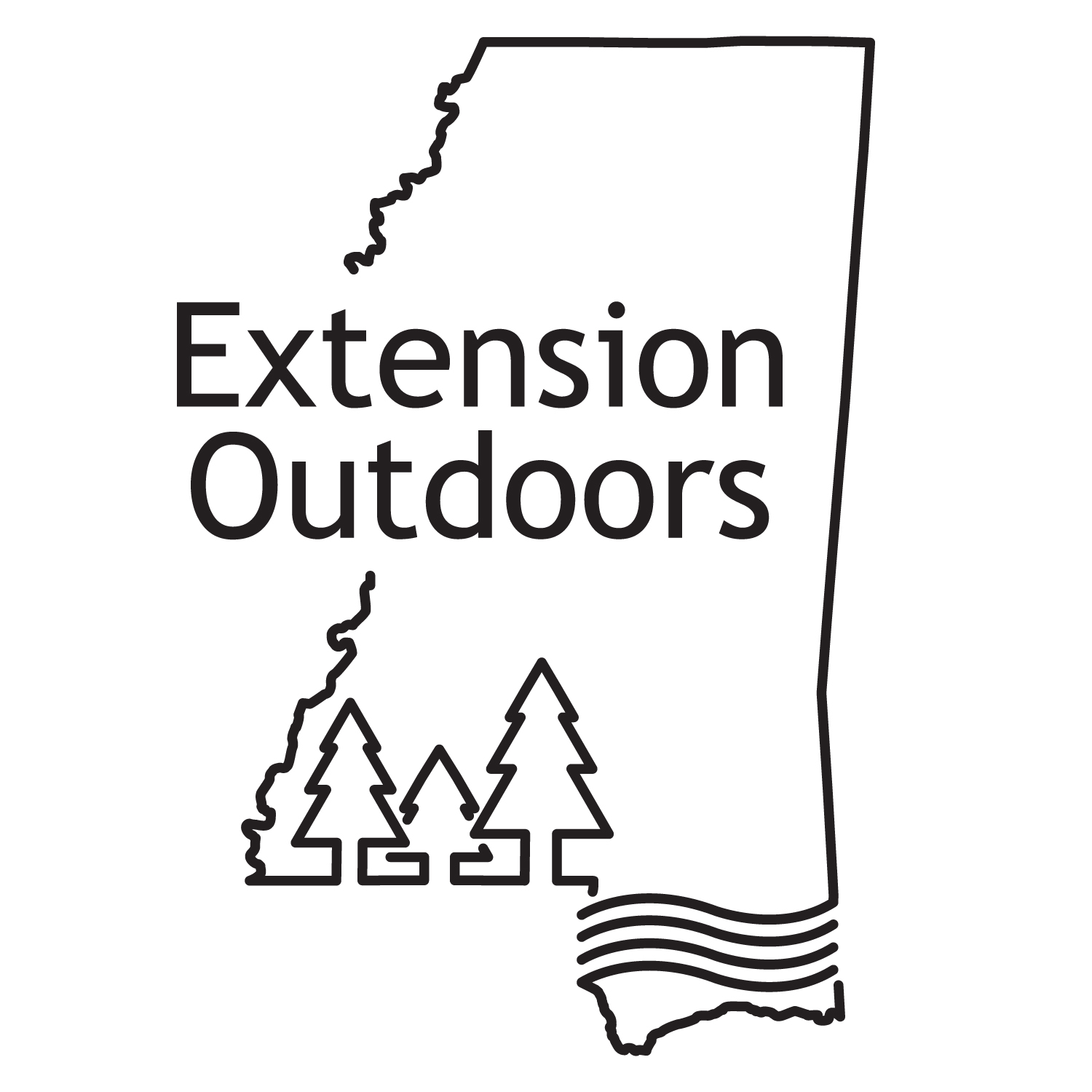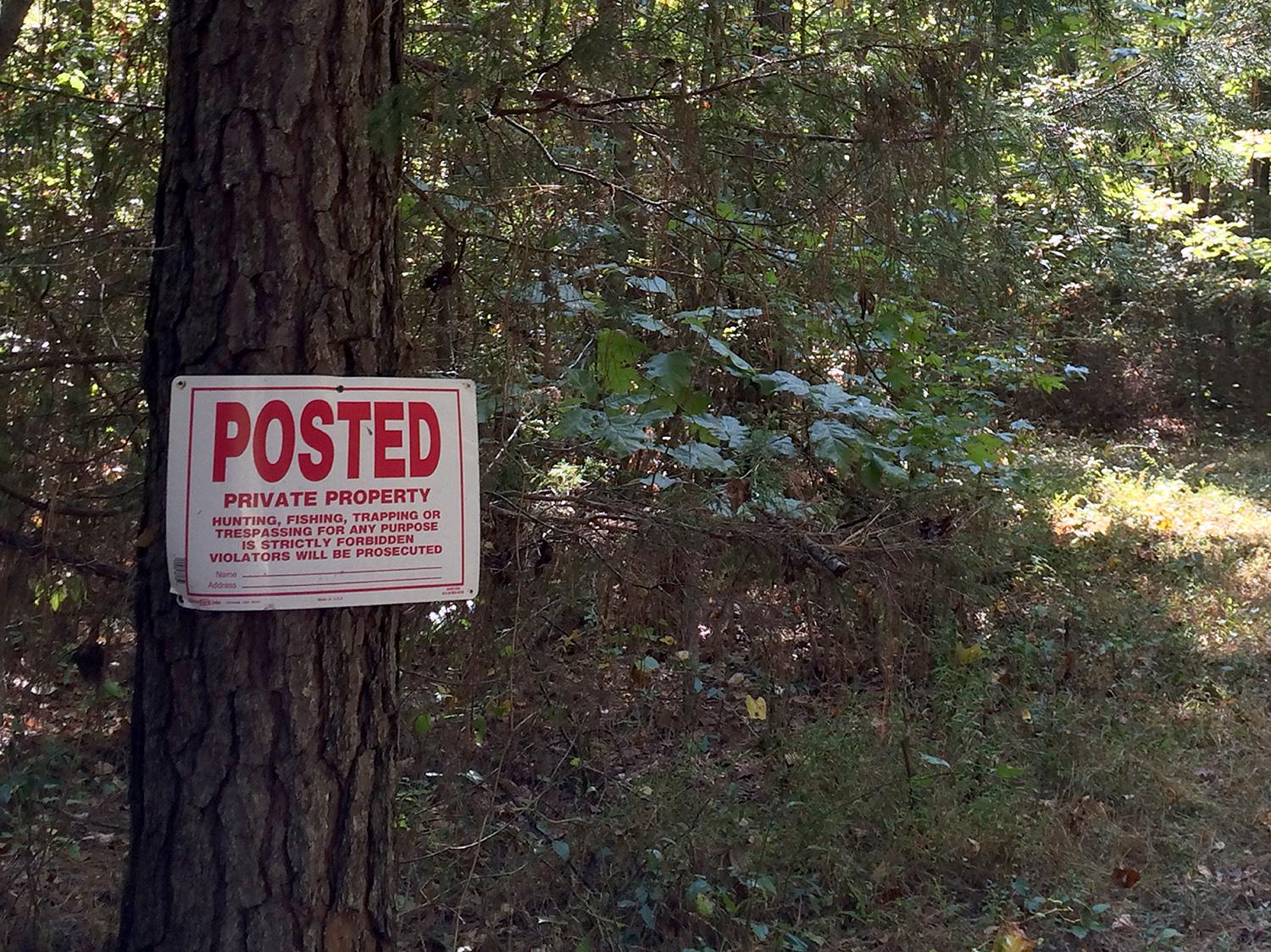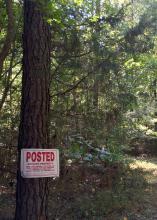Information Possibly Outdated
The information presented on this page was originally released on October 7, 2016. It may not be outdated, but please search our site for more current information. If you plan to quote or reference this information in a publication, please check with the Extension specialist or author before proceeding.
Knowledge can help address trespassing
STARKVILLE, Miss. -- Landowners often worry about trespassers entering their land, whether intentionally or by mistake, during hunting season.
Aside from not willfully or wantonly causing injury to trespassers, landowners have no other responsibility to these interlopers.
If an individual has permission from the landowner to hunt on the land or to fish in the pond, this visitor would be considered a licensee. A landowner has a duty to warn licensees of any hidden or known dangers on the property, such as a spirited bull on the back 40 acres or a bridge over the creek in need of repair. Trespassers enter private property at their own risk.
The third possible status is that of an invitee who is on the property for the mutual benefit of both parties -- the landowner and the invitee. If a landowner leases hunting access rights to their land, then the hunting guest becomes an invitee. In this case, landowners have a duty to exercise reasonable care not to injure the hunter and to warn him or her of any hidden dangers.
For example, the landowner should warn the hunting lessee about the bridge in need of repair or, better yet, remove or repair the bridge to exercise reasonable care.
Few actions are more irritating to landowners than someone trespassing or poaching wildlife on their properties. In addressing trespass, I recommend getting to know your local conservation officer and sheriff. Once you are aware that a trespasser is on your property, contact these law enforcement officers.
It is often difficult to actually catch the perpetrator, but if you find the trespasser’s vehicle on your land, take a photograph of the license plate and provide it to law enforcement officers.
Mississippi trespass laws provide that trespassing is a misdemeanor with fines of $150-$250 for first offenses. For second offenses (occurring within five years), punishment can include fines of $250-$500 and possibly imprisonment for 10-30 days. When the trespasser has been previously warned by the landowner orally, in writing or by sign, the fine can be up to $500 with a sentence of up to six months.
Although you are not required by law to post your property, I recommend this practice to make everyone aware of your property boundary lines. In many cases, posting property will prevent trespass problems. When approaching trespassers, avoid escalating an interaction with the violators. Make them aware that they are not welcome on the property and then allow a law enforcement officer to take over.
Following this approach, the word gets out quickly that you are serious about preventing trespass and poaching wildlife on your land, and these issues usually go away.
If you are interested in learning more about trespass prevention and other land management issues, please contact me at the MSU Extension Service or go to our website at http://www.naturalresources.msstate.edu. We routinely conduct landowner educational workshops throughout Mississippi where topics such as these are addressed.

Editor’s Note: Extension Outdoors is a column authored by several different experts in the Mississippi State University Extension Service.










